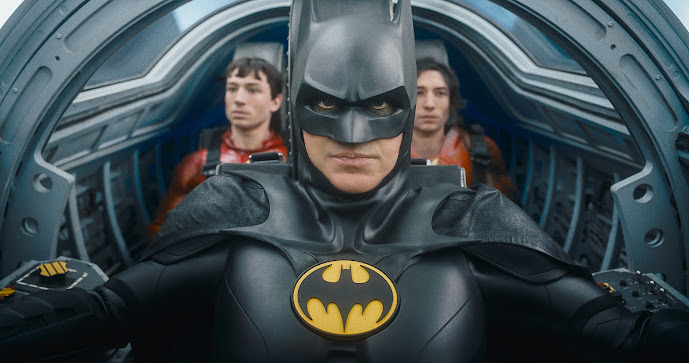Tod Browning's Freaks was a Saturday afternoon offering as part of Exhumed Cinema for the Strange Festival. It was first time the old Liberty Cinema in Perth has been open for films since 1997 (I believe they had some art and music shows there in 2022). The films are being shown by 35mm projector, in this case the projectionist spoke before the film. He told us the film would be on four 20-minute reels, and as they weren't allowed to cut the head or tail, there'd be a 10 second fade between reels. They might have needed more reels as, apparently, some of the more 'objectionable' scenes were cut from the original 90-odd minutes, bringing this widely seen version down to a smidge over 60 mins (it's pretty clear where the excises were made).
The screening actually turned out to be the fist leg of a night at the Strange Festival, which had shows and installations throughout the Perth CBD. We popped in to some pop-up events in and around Hay Street Mall - Slow Rainbow, The Zoo, Video Difficult, The Michael Cera Experience - and then caught a spot of music with Birdbox at Pooles Temple. Quite the art attack.
But back to the film. Freaks was Browning's follow up to the iconic Bela Lugosi Dracula, made the year before in 1931. Odd that he was riding high from that success and chose to make a film that must have been a risk, especially in the more conservative early 1930s. The test audiences generally hated it, requiring MGM to make those cuts mentioned above, and Browning's career never really recovered (he made only four more films after this).
The film itself isn't now as shocking as it likely was back then, but it still has its moments of unease, mainly due to the view of the circus 'freaks' of the time. The leads are Hans, a circus dwarf (played by Harry Earles, who would have been around 30 at the time, but due to his hypopituitary condition, looked like a child), and Cleopatra (Olga Baclanova), a 'normal' sized acrobat. Cleo entices Hans to fall for her, using his money while carrying on an affair with the circus strongman, Hercules (Henry Victor). Her treatment of her fellow performers, and Hans in particular, drives the others to despise her and worse, as we find out later. A key scene is the wedding dinner where the now infamous chant, "We accept her. One of us!" peals around the camp.
The acting is quite poor, maybe in keeping with the non-professional status of most of the cast, though Earles, his real-life sister, Daisy Earles and Angelo Rossitto were munchkins in The Wizard of Oz (Rossitto was quite prolific - imagine being in The Wizard of Oz, The Incredible Hulk, H.R. Pufnstuf AND Mad Max Beyond Thunderdome!). The film is delivered with very broad brushstrokes but its heart is in the right place - all the 'freaks' are nice folk (though not to be trifled with) and it's the able-bodied carnies who are portrayed as the wrong'uns here. A very dated (sometimes even hard to hear) classic, that doesn't really live up to its long-held rep.
See also:
Some of the films screening at the Liberty for Exhumed include: The Princess Bride, Akira, Pulp Fiction, Muppets from Space, A Clockwork Orange and Labyrinth, along with a John Waters trilogy. Something for everyone. Ends Sunday July 2nd.








